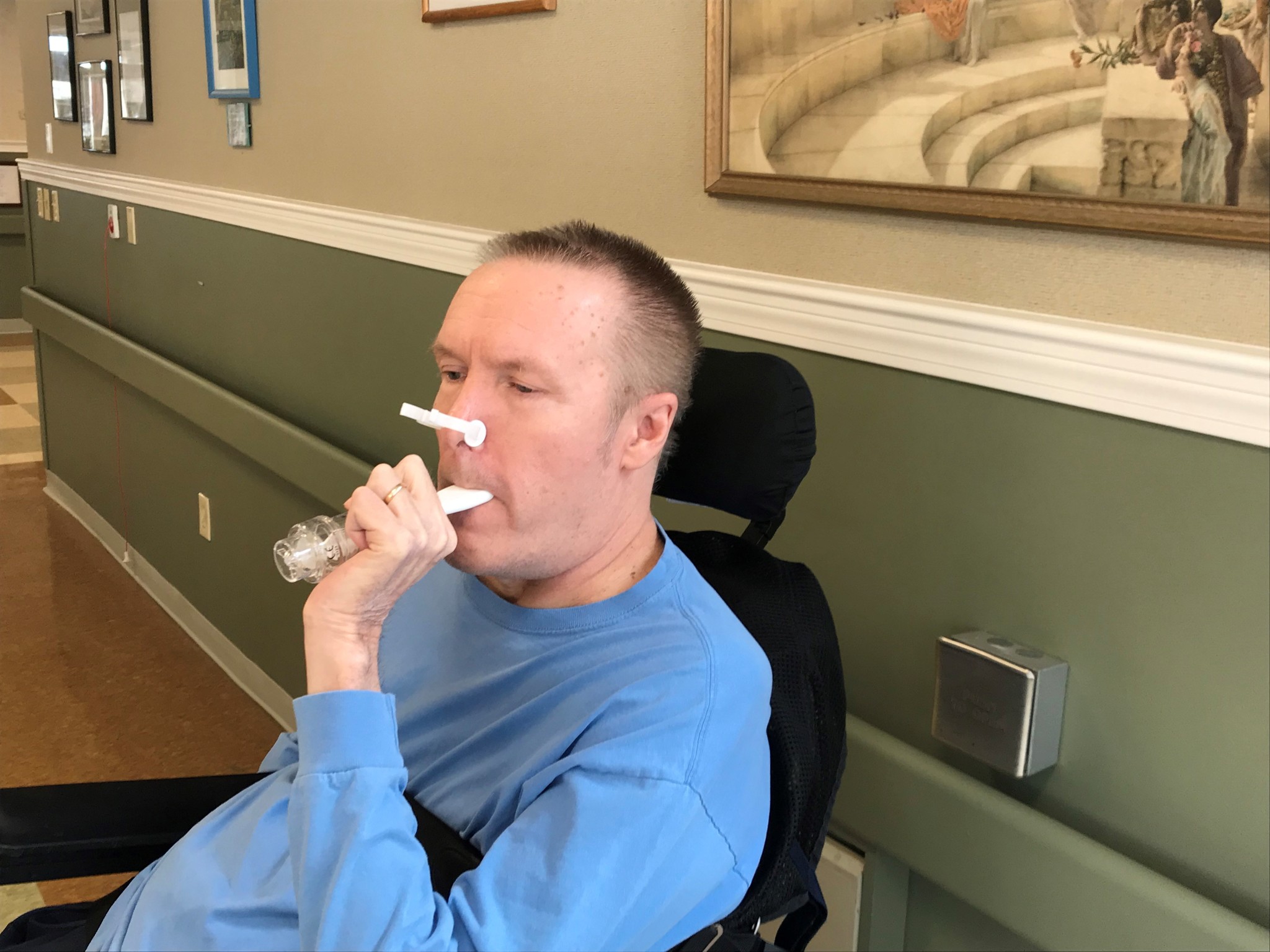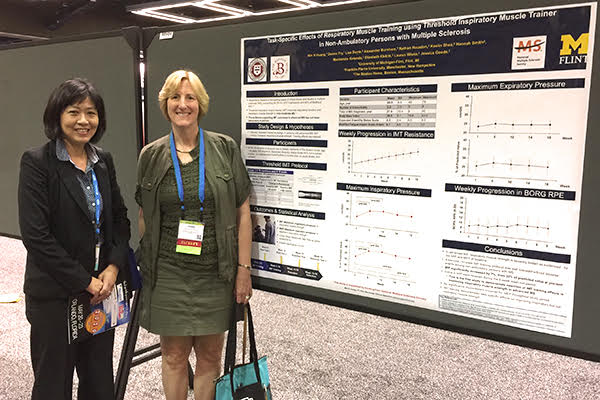Better breathing for people with MS thanks to UM-Flint research

Breathing problems can start early for people who have multiple sclerosis (MS), a chronic, degenerative condition affecting the brain and spinal cord. And those problems can lead to serious illnesses or death. Now, a team of researchers discovered that respiratory exercises help improve breathing for people with even severe MS.
"This research will help us better understand effective treatments for people with advanced MS," said Min Huang, associate professor of physical therapy at UM-Flint, a co-principal investigator in the project, along with Donna Fry, dean of the university's College of Health Sciences.
"We will be able to inform clinicians and researchers about effective protocols for respiratory muscle training in advanced MS," said Fry. "These results will contribute to our long-term research goals, including reducing complications from respiratory problems, delaying disability associated with MS, and improving function and quality of life in people with advanced MS."
Research is a crucial component for faculty at UM-Flint. Dr. Huang and Dr. Fry are getting the word out about their important findings. They are presenting their discoveries at various conferences, including the Consortium of Multiple Sclerosis Centers annual meeting this week in Seattle, Washington.

"Physicians, nurses, and other primary care providers often don't know about opportunities to strengthen the respiratory system within MS patients," said Fry. "This research offers positive evidence that this simple respiratory exercise can improve strength in muscles of respiration."
"People with MS often experience impairments in strength and endurance of muscles for respiration," said Huang. "People with weak respiratory muscles may need to use more effort for breathing and this can limit a person's ability to participate in activities. Complications from breathing problems, such as pneumonia, are the most frequent reasons for critical illness and deaths, particularly as the disease progresses."
The UM-Flint researchers teamed up with The Boston Home in Massachusetts, a care facility for MS patients. The research team found that using a simple, low
"We were able to demonstrate that even persons with severe MS who are wheelchair-bound and cannot walk still have the capacity to improve strength for muscles for breathing. The training also was well tolerated by patients, and no side effects were reported," said Huang.
Fry and Huang continue to explore this issue, and delve into other factors that could improve breathing for MS patients.
"We are trying to find out what is most effective but also to get the message out that they should be attending to the respiratory system," said Fry.
Related Posts
No related photos.
UM-Flint News
The Office of Marketing & Communications can be reached at mac-flint@umich.edu.